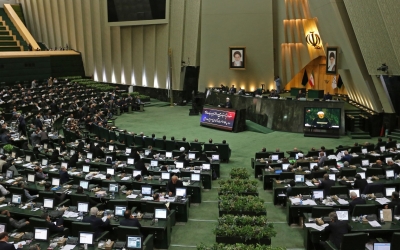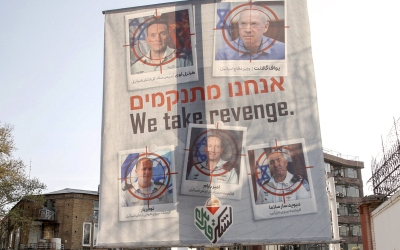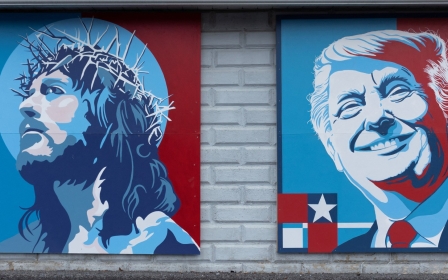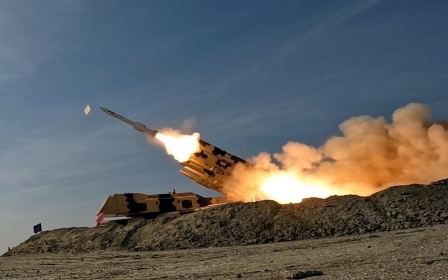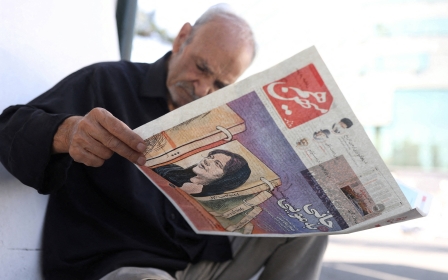Iranian press review: Experts divided over impact of Trump's return on Iran's economy
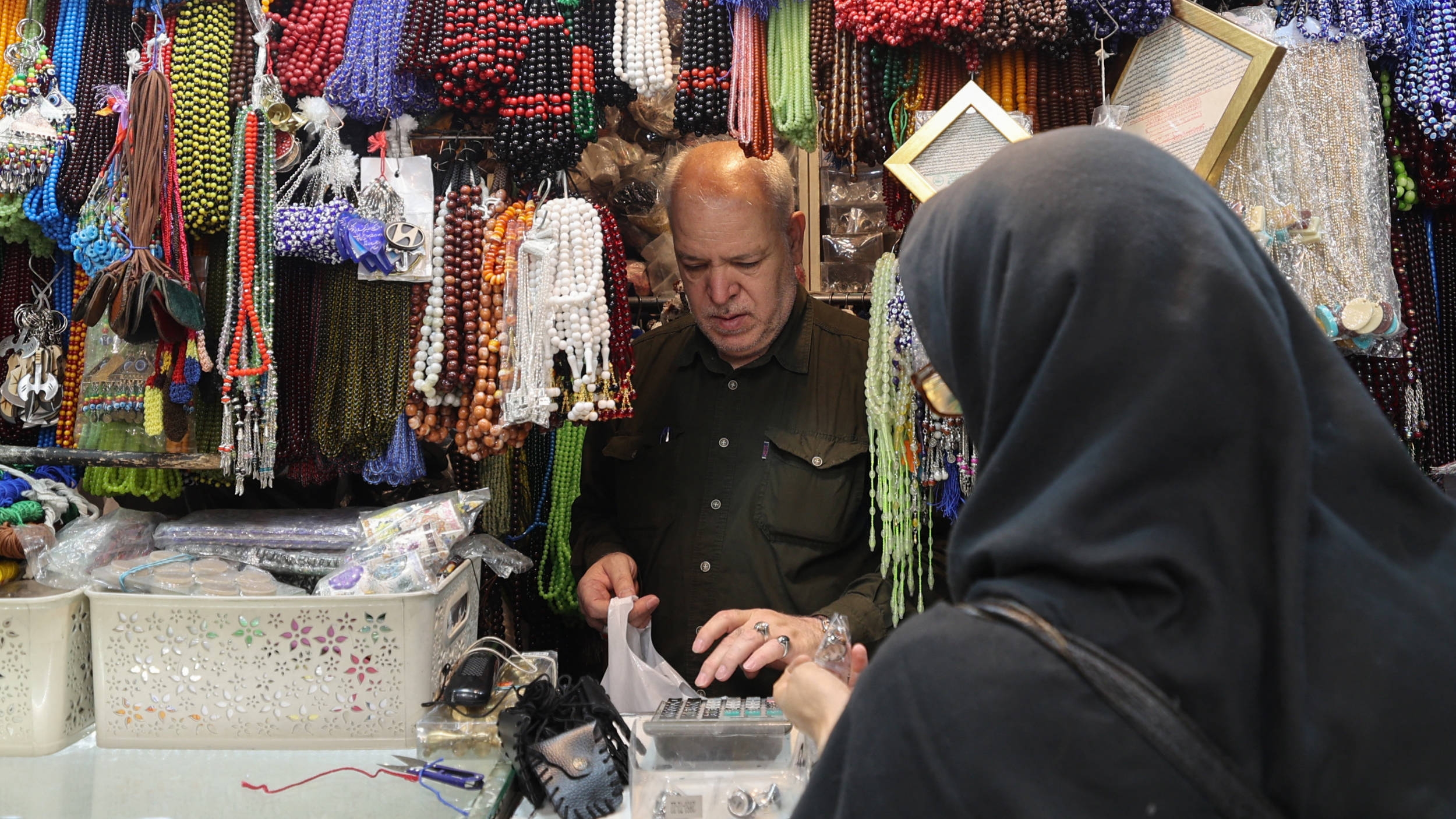
How will Trump return impact Iran’s economy?
Economists have weighed the potential impact on Iran's economy should former President Donald Trump return to the White House following the US presidential elections in November.
Since Trump secured significant victories in primary elections, discussions about Iran's economic future have taken centre stage, amid an ongoing financial crisis and the looming threat of additional sanctions.
Iranian reformists and conservatives offered divergent views. While reformists are sounding the alarm for the establishment, conservatives are downplaying the impact of sanctions on Iran's ailing economy.
Masoud Barati, a vocal opponent of the 2015 nuclear deal between Iran and world powers, was among those suggesting that new sanctions would not cripple Iran’s economy, due to Tehran’s adeptness at circumventing US and European Union sanctions.
“Given the growing divergence between the US and its allies, there's a real chance of cracking the framework of existing sanctions,” he said in an opinion piece.
Meanwhile, the Ensaf News website published an interview with Seyyed Hamid Hosseini, director of the Iranian Oil, Gas and Petrochemical Products Exporters’ Union, in which he explained that many foreign companies have left Iran due to Trump’s Maximum Pressure policy.
“Those who underestimate Trump's potential impact fail to grasp the complexities of the global economy. His return will undoubtedly escalate pressure on the country, and we must proactively seek solutions from now," Hosseini said.
Reza Tahmasebi, an economics reporter, echoed those sentiments in an analysis for the economist weekly Tejarat-e Farda. While he acknowledged that Trump could not impose new economic sanctions, since all sanctionable entities were already targeted, he pointed out that Trump could reduce Iran's oil exports.
“Trump may not be able to increase sanctions, but he can certainly revoke the concessions granted during the Biden era and slash Iran's oil sales, dealing a severe blow to the government's revenue,” Tahmasebi concluded.
Fuel consumption surges
Iran, a nation abundant with oil resources, faces a unique situation as it tackles a surge in fuel consumption, the ISNA news agency reported at the end of the two-week Nowruz national holidays.
According to ISNA’s report, the National Iranian Oil Products Distribution Company recorded the distribution of 121.7m litres of fuel on the 11th day of the holidays, marking the highest daily volume since the beginning of the Persian calendar year on 20 March.
This surge represents an 18 percent increase on the same period last year, indicating a worrying trend of escalating fuel consumption. Even amid economic challenges and international sanctions, Iranians continue to consume fuel at unprecedented rates, due to low prices.
The report added that there was a 6.2 percent increase in fuel distributed nationwide during the Nowruz festival compared with the same period last year.
Fuel consumption carries significant political implications in Iran, where fluctuations in oil prices can incite sociopolitical unrest. In 2017, a spike in fuel prices led to widespread anti-government demonstrations.
The National Iranian Oil Products Distribution Company has issued a warning regarding the escalating trend of fuel consumption, urging citizens to manage fuel usage responsibly and adhere to guidelines for optimal consumption.
Measured response expected to Damascus attack
Despite immediate vows by Iran’s Supreme Leader and other high-ranking officials to punish Israel for a deadly attack on Iran’s consulate in Damascus, experts have suggested Tehran will exercise caution in retaliating against Tel Aviv.
The strike on Monday, which killed seven senior military advisers, including Islamic Revolutionary Guard Corps (IRGC) commander Mohammad Reza Zahedi, marked the latest in a series of Israeli attacks targeting Iranians in Syria.
'The response will deny Israel any pretext for further military escalation'
– Jafar Ghanadbashi, foreign policy expert
On Wednesday, the pro-establishment dailies Hamshahri and Jam-e Jam reinforced the promise of retaliation, featuring a photo on their front pages of a Shia clergyman holding the barrel of a gun, with headlines promising revenge.
However, experts from various political perspectives, in discussions with Farsi media, indicated that an immediate response of equal magnitude from Iran is improbable.
Jafar Ghanadbashi, a foreign policy expert aligned with conservatives, highlighted Tehran’s past responses to Israeli and US raids against IRGC commanders in Iraq and Syria, pointing to Iran’s inclination to avoid escalating tensions.
“History shows Iran’s measured approach,” Ghanadbashi was quoted as saying by the Ham-Mihan daily.
“Israel may seek a favourable military reaction from Iran, but as seen during the recent war in Gaza, Iran will act cautiously. The response will deny Israel any pretext for further military escalation,” he added.
Brigadier General Sardar Hossein Alaei, former IRGC naval commander, echoed the sentiment, suggesting Iran would deliberate before retaliating to Monday’s raid.
“It’s wise for Iranian authorities to refrain from hasty reactions. Patience, planning, and minimal propaganda will convey to Israel that every offence will meet a proportional response,” he was quoted as saying by the Donya-e Eqtesad daily.
* Iranian press review is a digest of news reports not independently verified as accurate by Middle East Eye.
Middle East Eye propose une couverture et une analyse indépendantes et incomparables du Moyen-Orient, de l’Afrique du Nord et d’autres régions du monde. Pour en savoir plus sur la reprise de ce contenu et les frais qui s’appliquent, veuillez remplir ce formulaire [en anglais]. Pour en savoir plus sur MEE, cliquez ici [en anglais].


